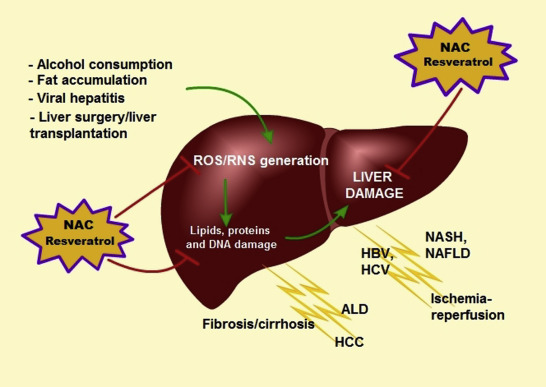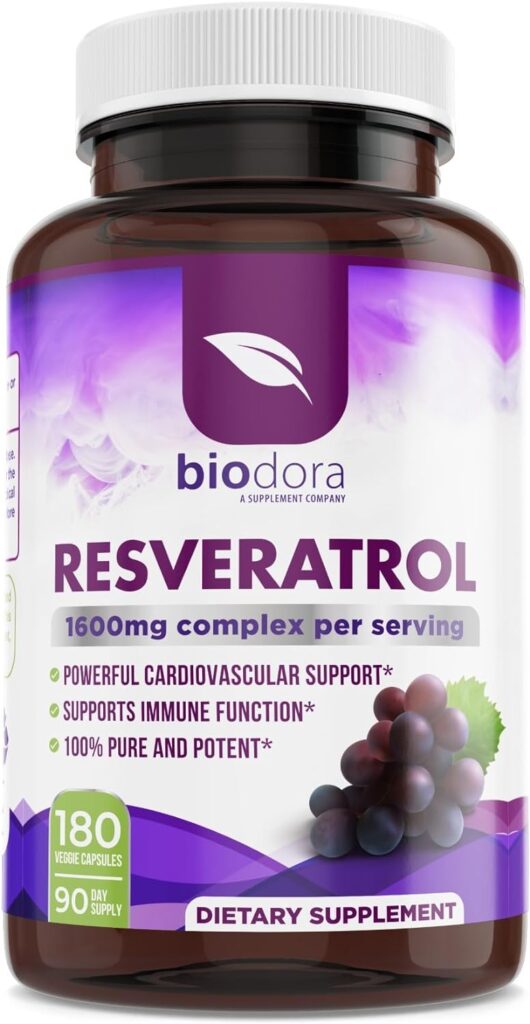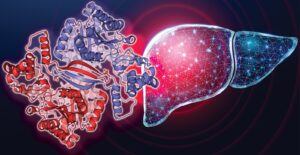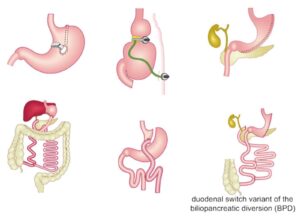
Resveratrol and Liver: What You Need to Know
However, amidst the excitement surrounding its benefits, questions have emerged about its impact on liver health. As the body’s primary detoxification organ, the liver plays a vital role in processing substances like resveratrol, raising concerns about potential side effects and risks associated with supplementation.
In this comprehensive guide, we delve into the science behind resveratrol and its effects on liver function, exploring the evidence, potential risks, and strategies for ensuring safety.
Understanding Resveratrol

Resveratrol is a natural compound found in various plants, particularly in the skin of red grapes, peanuts, blueberries, and some other berries. It belongs to a class of compounds known as polyphenols. Here are some key points to understand about resveratrol:
- Antioxidant Properties: Resveratrol is known for its antioxidant properties, which means it helps neutralize harmful free radicals in the body. Free radicals are unstable molecules that can damage cells and contribute to aging and various diseases;
- Health Benefits: Research suggests that resveratrol may have several potential health benefits. These include:
- Cardiovascular Health: Resveratrol may help improve heart health by reducing inflammation, lowering blood pressure, and preventing the oxidation of LDL cholesterol, which is a risk factor for heart disease;
- Anti-inflammatory Effects: Resveratrol has been studied for its potential anti-inflammatory properties, which may help in conditions such as arthritis and other inflammatory diseases;
- Neuroprotective Effects: Some studies suggest that resveratrol may have neuroprotective properties, meaning it could help protect against neurological diseases like Alzheimer’s and Parkinson’s;
- Anti-cancer Properties: There is some evidence to suggest that resveratrol may have anti-cancer effects, although more research is needed in this area;
- Anti-aging Potential: Resveratrol has gained attention for its potential role in promoting longevity and combating age-related diseases. Some researchers believe that its antioxidant and anti-inflammatory properties may contribute to slowing down the aging process;
- Sources and Supplements: Resveratrol is naturally found in foods like red wine, grapes, berries, and peanuts. However, the amount of resveratrol in these foods is relatively low. As a result, some people choose to take resveratrol supplements to obtain higher doses. These supplements are available in various forms, including capsules and liquid extracts;
- Bioavailability: One challenge with resveratrol supplementation is its low bioavailability, meaning that the body absorbs and utilizes only a small percentage of the ingested dose. Researchers are exploring ways to improve the bioavailability of resveratrol to enhance its effectiveness.
While resveratrol shows promise for various health benefits, it’s essential to note that much of the research has been conducted in animals or in laboratory settings. More human studies are needed to fully understand its effects, proper dosages, and potential side effects. Additionally, individuals should consult with a healthcare professional before starting any new supplement regimen, especially if they have underlying health conditions or are taking medications.
Exploring Resveratrol’s Effects on Liver Health
While resveratrol has garnered praise for its potential benefits, concerns have been raised regarding its impact on liver function. The liver plays a crucial role in detoxification and metabolism, making it susceptible to damage from various substances, including supplements like resveratrol.
Several studies have investigated the potential hepatoprotective effects of resveratrol, suggesting that it may help protect the liver from damage caused by toxins and oxidative stress. However, conflicting findings have also been reported, with some studies indicating that resveratrol could potentially exacerbate liver injury under certain conditions.
Potential Side Effects of Resveratrol on the Liver:
One of the primary concerns regarding resveratrol supplementation is its potential to cause liver damage. Although research in this area is ongoing, some studies have raised alarms about the safety of high-dose or long-term use of resveratrol, particularly in individuals with pre-existing liver conditions.
Liver toxicity associated with resveratrol supplementation has been reported in animal studies, with findings suggesting that excessive intake may lead to liver inflammation and damage. However, it’s essential to note that these studies often involve high doses of resveratrol that may not be reflective of typical human consumption.
Mitigating Risks and Ensuring Safety:
While the evidence regarding resveratrol’s impact on liver health is mixed, there are several steps individuals can take to minimize potential risks associated with supplementation:
- Consult with a Healthcare Professional: Before starting any new supplement regimen, especially if you have underlying liver issues, it’s crucial to consult with a healthcare provider to assess potential risks and benefits;
- Follow Recommended Dosages: Stick to recommended dosages and avoid exceeding the suggested intake without medical supervision. High doses of resveratrol may increase the likelihood of adverse effects, including liver toxicity;
- Choose Reputable Brands: Opt for resveratrol supplements from reputable brands that adhere to quality standards and undergo rigorous testing for purity and potency;
- Monitor Liver Function: If you’re taking resveratrol supplements, consider monitoring your liver function regularly through blood tests to detect any signs of liver damage or dysfunction;
- Maintain a Balanced Lifestyle: Incorporate resveratrol-rich foods like grapes and berries into your diet as part of a balanced and healthy lifestyle.
Resveratrol obtained from dietary sources is generally regarded as safe and may provide supplementary health benefits beyond those offered by supplementation alone.
Conclusion
While research suggests that resveratrol may offer advantages for cardiovascular health and aging, questions remain about its impact on liver function. As with any supplement, caution is essential, particularly for individuals with pre-existing liver conditions or those considering high-dose supplementation.
By staying informed, consulting with healthcare professionals, and adhering to recommended guidelines, individuals can navigate the complex terrain of resveratrol supplementation while prioritizing liver health and overall well-being. As research continues to shed light on the interplay between resveratrol and liver function, maintaining a balanced approach and prioritizing safety will be key in harnessing the potential benefits of this intriguing compound.

